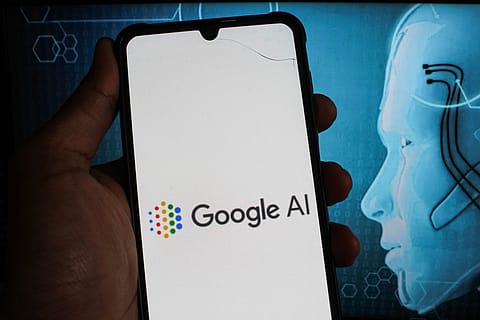How Indian companies are putting Google’s AI to work
Google’s largest AI hub outside the US aims to power India’s next wave of digital transformation.

Google has planted its biggest artificial intelligence hub outside the US in India, and it’s already beginning to show what that means on the ground. At a media roundtable today, Karan Bajwa, president of Google Cloud Asia Pacific, said the move marks a turning point for both the company and India’s growing AI ecosystem.
“Our CEO, Thomas Kurian, announced what we now call the largest AI hub outside the United States,” said Bajwa. “For the first time, we’re bringing all of Google’s consumer platforms into the country in a post-beta scale AI hub for India.”
The decision, he added, comes as Google sees India not just as a key market but as a proving ground for large-scale enterprise AI adoption. The company’s partnerships with Indian corporates and startups, from TCS and MakeMyTrip to InVideo, highlight how AI is now embedded across industries.
TCS
For Tata Consultancy Services, the focus is inward. “We are driving what we call an AI-first TCS,” said Aarthi Subramanian, executive director and COO of TCS. “That means democratising access to AI tools for all our employees, to make every TCSer an AI practitioner.”
Subramanian said the company has built a vast internal AI infrastructure where associates can learn, experiment, and build solutions using Google’s Gemini Enterprise platform. “Our teams can now cut down the time it takes to move from requirements to design and delivery. Customers are responding well because we can solve problems and show value faster,” she said.
TCS has also created an “agent marketplace” - over 100 AI-powered agents for industries like manufacturing and BFSI - built on Google’s AI stack. “Many of these are already live in client environments,” she added.
MakeMyTrip
If TCS is bringing AI inside the enterprise, MakeMyTrip is putting it directly in consumers’ hands. “Our journey with AI started back in 2016, but the last couple of years have been transformational,” said Rajesh Magow, co-founder and group CEO of MakeMyTrip.
The company recently introduced Myra, a conversational travel assistant built using Google’s AI models, including Gemini. “Travel search and booking have always been transactional, you tell us where you want to go, and we give you options,” Magow said. “What was missing was the planning part. Myra stitches that together - from inspiration to transaction - in one interface.”
The platform supports both voice and vernacular interactions. “We launched with Hindi, English and Hinglish, and nearly 50% of the 25,000 daily interactions are through voice,” Magow said. “It validates our belief that people find conversation a more natural way to plan and book travel, especially in smaller towns.”
(INR CR)
InVideo
While legacy companies are adapting, startups like InVideo are racing ahead. founder and CEO Sanket Shah described AI’s pace as “moving from pagers to early mobile phones.”
“AI is evolving extremely fast, and every advantage in lead time matters,” he said. “Working with Google helps us deliver new kinds of video quality faster.” Shah pointed to the Gemini and VO3 models as “large step changes” that enable InVideo to generate sophisticated multimodal video content. “If something like VO3 hadn’t come with that level of quality, our business would be dead,” he said bluntly.
‘Not a bubble, but a shift’
Asked if AI is in a bubble phase, Bajwa disagreed. “The sheer investment across the ecosystem shows this isn’t a bubble. It’s creating very real impact across industries,” he said.
Subramanian noted that 2025 feels different from 2023 because of the “reasoning capability” of newer models. “We’re seeing POCs turn into production-grade projects and ROI-led scaling across organizations,” she said.
Magow added a broader perspective, “Just like the internet wasn’t a bubble in the 2000s, AI isn’t one now. It’s a capability shift. Timing matters.”
As Google doubles down on AI infrastructure in India, sustainability remains a priority. “We’re already carbon neutral and on track to be net-zero by 2030,” Bajwa said. “All our new data centers are built with clean energy. That’s a key factor in deciding where we expand.”